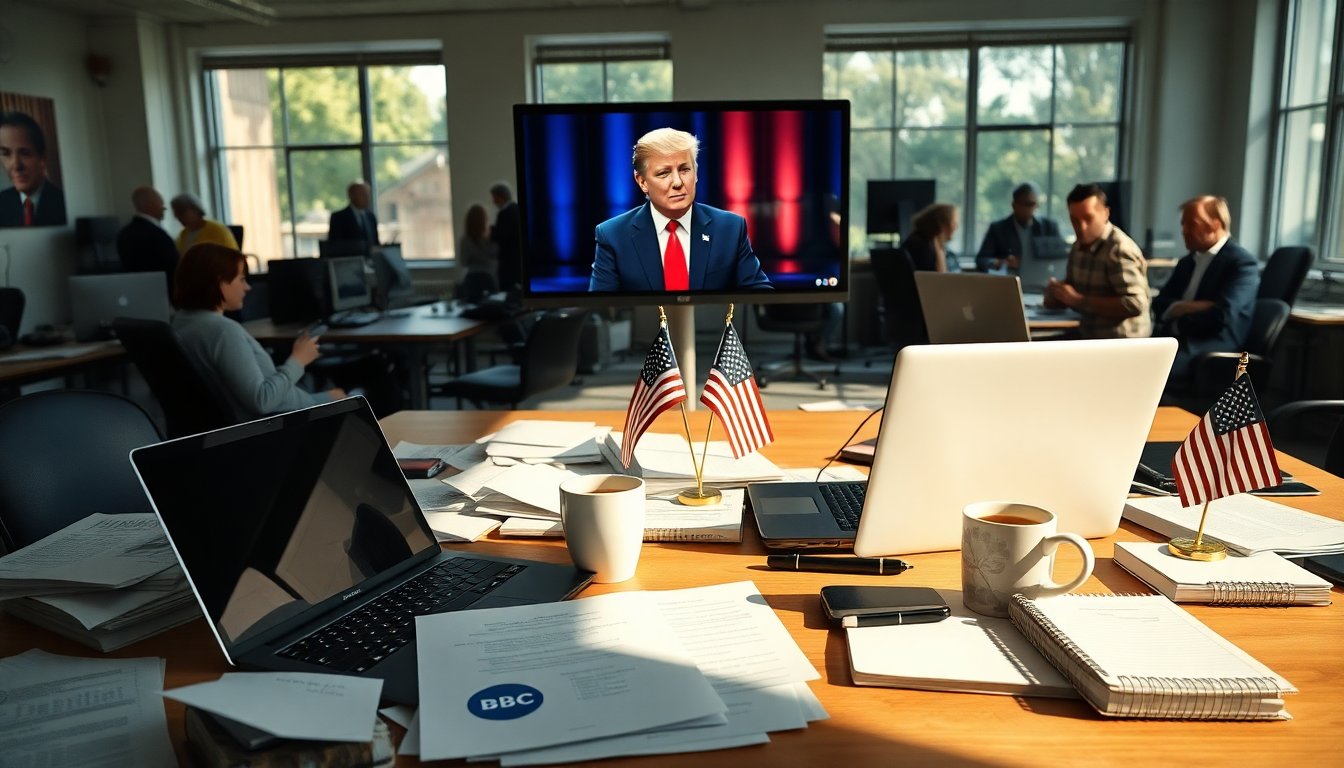Table of Contents
The recent controversy involving U.S. President Donald Trump and the BBC highlights the complexities surrounding media representation and legal accountability. Following the airing of a Panorama episode that utilized selectively edited footage from Trump’s speech on January 6, Trump has announced intentions to initiate a defamation lawsuit against the broadcaster. This situation not only raises questions about media integrity but also reflects Trump’s broader strategy of confronting media outlets that he perceives as hostile.
The Panorama episode and its fallout
In the controversial documentary, the BBC presented Trump’s speech in a manner that suggested he incited his supporters to attack the U.S. Capitol. The edited clip included statements from Trump that were spliced together in a way that misrepresented his intent. While he stated, “We’re going to walk down to the Capitol… and we fight. We fight like hell,” the full context of his remarks, which included encouragement to cheer on lawmakers, was not adequately conveyed. This has led to significant backlash against the BBC, culminating in a public apology.
Legal implications of Trump’s lawsuit
Trump’s legal threat is substantial; he is considering seeking damages ranging from $1 billion to $5 billion under U.S. law, specifically in Florida, where the statute of limitations for defamation claims allows for a longer window compared to the UK. However, navigating this lawsuit poses challenges, as the incriminating footage was not broadcast in the U.S, complicating jurisdictional claims. Furthermore, Trump’s legal team must demonstrate that the BBC acted with actual malice and that his reputation suffered tangible harm as a result of the broadcast.
Historical context of media disputes
This isn’t the first time the BBC has faced a significant crisis due to its programming choices. A notable incident occurred during the mid-1980s when the documentary “Maggie’s Militant Tendency” aired, which accused several Conservative MPs of harboring extremist views. The backlash from the Conservative Party resulted in multiple defamation lawsuits, some of which the BBC chose to contest rather than settle, leading to a prolonged legal battle.
Lessons from the past
The fallout from the earlier Panorama episode serves as a cautionary tale. The program, which presented altered footage of Conservative MP Harvey Proctor, was criticized for its inaccurate portrayal, with Proctor himself recalling how he appeared in multiple outfits during a single interview, undermining the program’s credibility. Ultimately, the BBC faced significant legal repercussions, including substantial settlements to the plaintiffs, who claimed defamation and misrepresentation.
The current media landscape and Trump’s approach
Trump’s actions against the BBC can be viewed in the context of his longstanding animosity towards mainstream media, which he labels as biased against him. His administration has seen numerous lawsuits filed against various media organizations, including prominent outlets like CNN and The New York Times, as he seeks to challenge narratives he deems damaging. This strategy serves to rally his base while simultaneously creating a chilling effect on media coverage.
In this instance, the BBC’s apology may not suffice for Trump, who aims to leverage this situation to reinforce his narrative of victimization by the media. The implications of his potential lawsuit are broad, affecting not only the BBC but also the way media organizations approach coverage of public figures moving forward. The stakes are high and, depending on the outcome, this could set a precedent for future media engagements with high-profile individuals.
As the media landscape continues to evolve, the confrontation between Trump and the BBC underscores the delicate balance between journalistic integrity and the rights of individuals to protect their reputations. This ongoing saga will be closely watched as it unfolds, with significant ramifications for the relationship between media and politics.


